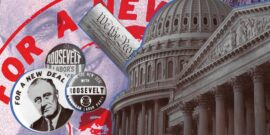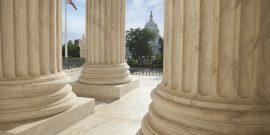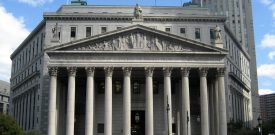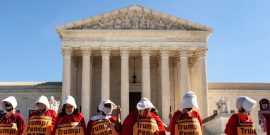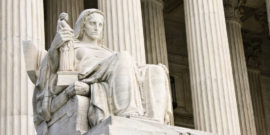We call the civil rights revolution “a revolution” precisely because it overhauled our constitutional order.
Jesse Merriam
Have the constitutional questions that confronted twentieth-century conservatives in the wake of the New Deal retained any relevance?
To fully appreciate the controversy over Chevron, one must confront the dubious constitutional status of the administrative state.
Both Vermeule and Hazony distort the past and avoid the hard work of restoring the American constitutional order.
The common good legal movement avoids the hard work of making constitutionalism function in the polity we actually inhabit.
Federalism is central to the American tradition because confederated governance promotes an essential feature of the common good—a common people.
What constitutes an originalist reading of the 14th Amendment?
We should not invert the founding by viewing state courts as mere vehicles for the restoration of federal power.
Judicial restraint is not responsible for the disorder of our Supreme Court confirmation process.
Any effort to restore the American legal tradition must recognize that "individual liberty" decisions have revolutionized our constitutional order.
The Court's inconsistencies may be a function of the peculiarities of our political system, not the peculiarities of particular justices.
More than the Bostock decision itself, structural defects in legal conservatism spell trouble for its future as a cohesive movement.
If the demolition from the 2016 wrecking ball does not create this change in the legal world, I think it is safe to say the next populist uprising will.
Originalist thought has not just been on a steady legal trajectory over the last 20 years. There is also an important and overlooked political story to tell.
Jesse Merriam is an associate professor at Patrick Henry College and a Washington Fellow at The Claremont Institute's Center for the American Way of Life.

